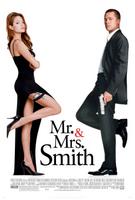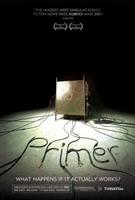Batman Begins
 Director: Christopher Nolan
Director: Christopher NolanMain Cast: Christian Bale, Michael Caine, Gary Oldman, Katie Holmes, Morgan Freeman, Liam Neeson, Cillian Murphy
Writer(s): Christopher Nolan & David S. Goyer
Director of Photography: Wally Pfister
Producer: Larry J. Franco, Charles Roven, & Emma Thomas
Editor(s): Lee Smith
Original Score By: James Newton Howard & Hans Zimmer
Release Date: 2005 June 15
I was a bit aprehensive about this one. But as I marched out of the theater all I could think was: finally. Finally someone has done some justice to the billionaire masked crusader. Finally I can clean the disgusting taste from my mouth that Schumacher left with his last two bastardizations of the Batman series. Finally I am freed from the vision of Batman in his suit complete with nipples. Finally I can clear my head of the Governator as Mr. Freeze saying, "You're not sending ME to the COOLER! " Finally.
This film succeeded on many levels, not the least of which was its dedication to capturing the heart of the source material. The Batman comics and character, created by Bob Kane and begun circa 1939, have always had a dark side. Nolan and Goyer worked hard in their writing to capture this essence. Diehard comic book fans will probably be willing to argue about details of the story that are not correct or otherwise nitpick the film apart. I, however, am willing to accept the deviations because the outcome was something of substance. While many may view comic books as children's fare Batman is, at its core, deep, dark, and intelligent. That is what this movie is all about. The darkness, in fact, is sometimes so real that the characters and sequences actually border on frightening.
While the intent of the writing and directing may have been to stay true to the original material what I thoroughly liked about this interpretation was its dedication to believability. Gotham City did not seem all that unusual. A nice mix of present day, near future, and classic style. All just enough so that you think it could occur in the present day world, but indistinct enough to prevent the pinpointing of an exact era. The close shot fight scenes were chaotic and realistic. The criminals did not attack, conveniently, one at a time but moved in all at once against the aspiring crime fighter. The filmmakers were not afraid to let the action get messy and raw.
Most superhero items are sufficiently explained to make them believable with only a minor stretch of the imagination. The gadgets, gizmos, vehicles, fighting, flying, and the Batcave do not just mysteriously appear, but are provided historical and logical context. The cast and filmakers don't force you to check your sense of reason at the door. They treat you with respect and dignity.
The audienced is served a series of flashbacks as Bruce Wayne deals with his childhood fears and anti-criminal training. We are given a glimpse of the driving forces that move Wayne's passion to be so deep seated in his soul. We identify and understand his motivation for the life and balance he is seeking. The training is intense and the mentor/pupil dialague is intriguing throughout.
I did miss the art deco Gotham City; the overly stylized tall buildings with sweeping "speed lines", sunbursts, and leaded glass. But the grittiness of the city is ubiquitous and well communicated. The social castes are well established. The poverty stricken live in the slums as those more fortunate in the shining skyscraper metropolis. It is only characters like Wayne's father, and to some degree Batman, who are willing to cross the social boundaries for the good of the city.
Despite Wayne's initial impetus of vengeance and his apparent dissimilarity from his humanitarian father, he at many points, makes decisions to choose the morale high ground. His motivation is not to needlessly inflict pain and death but to seek justice and balance. He looks on at Gotham and sees a city destined to be more, but ravaged to its foundation by the evil that pervades it. Instead of turning his back on the sinful masses, he humbles himself from his billionaire lifestyle to the level of those he intends to rescue and battles the ruffians on their turf. While his methods may be unconventional and, at times even dubious, his purpose is heartfelt and honest. And interestingly, just as Batman believes that something can be done to rescue Gotham Alfred frequently repeats, even in times of despair, that he will never give up on Master Wayne and the man that he can be.
There were admittedly a few times when characters delivered campy roll-your-eyes dialogue. Since they were infrequent and occasionally even humorous, the overall effect was negligible.
The star-studded cast stretched all the way across the bottom of the theatrical poster and each was expertly chosen. Even Holmes character was sufficiently bland as to not make her limited acting skills overtly apparent. We can only cross our fingers in hopes that many, if not all, of the thespians will be returning for another chapter. All in all the misteps were minimal and easily overlooked.
Bottom Line: This work was more mainstream for Nolan and falls somewhat short of his other filmic achievements. Exceeding even Tim Burton's interpretation of the saga, Nolan and Goyer together create a wonderful mix of comic book qualities with believable settings. The story is captivating and smart. The style subdued, but appropriate. The cast fall effortlessly into each of their roles. All the ingredients are right. Put it all together and the real bottom line here is: Batman is back.
An unmasked, 7 out of 10.
~RG








